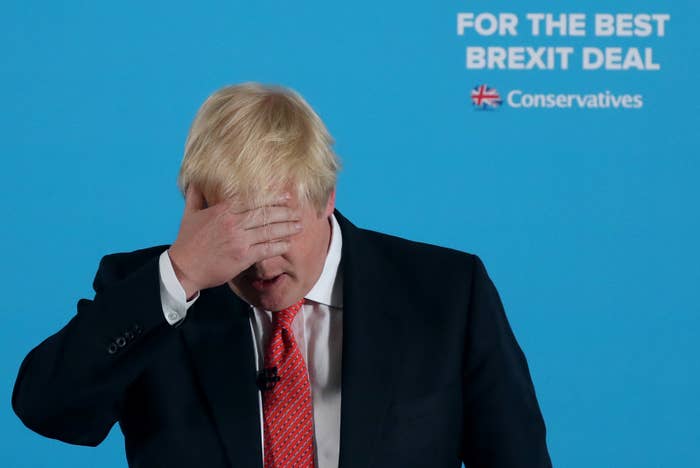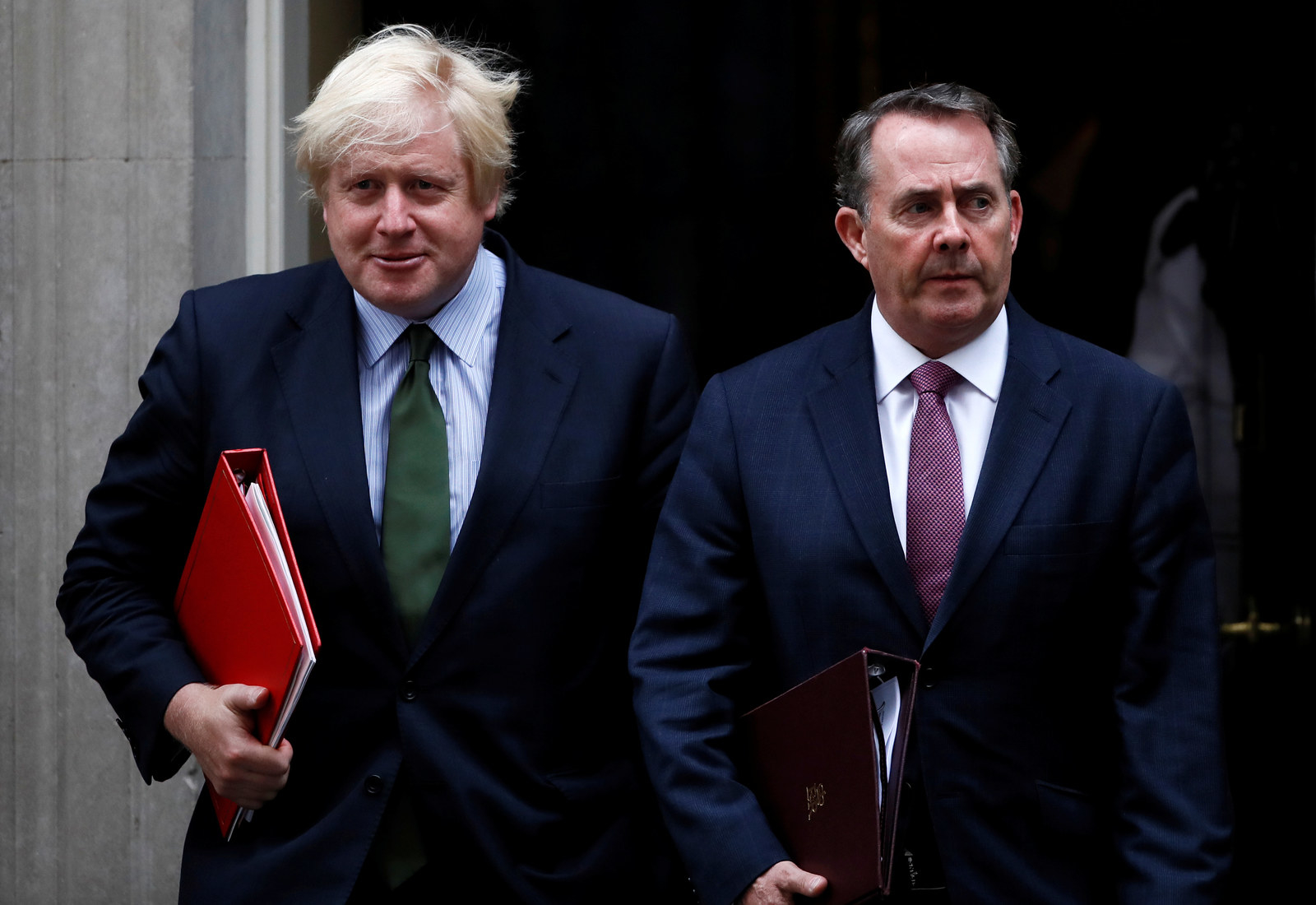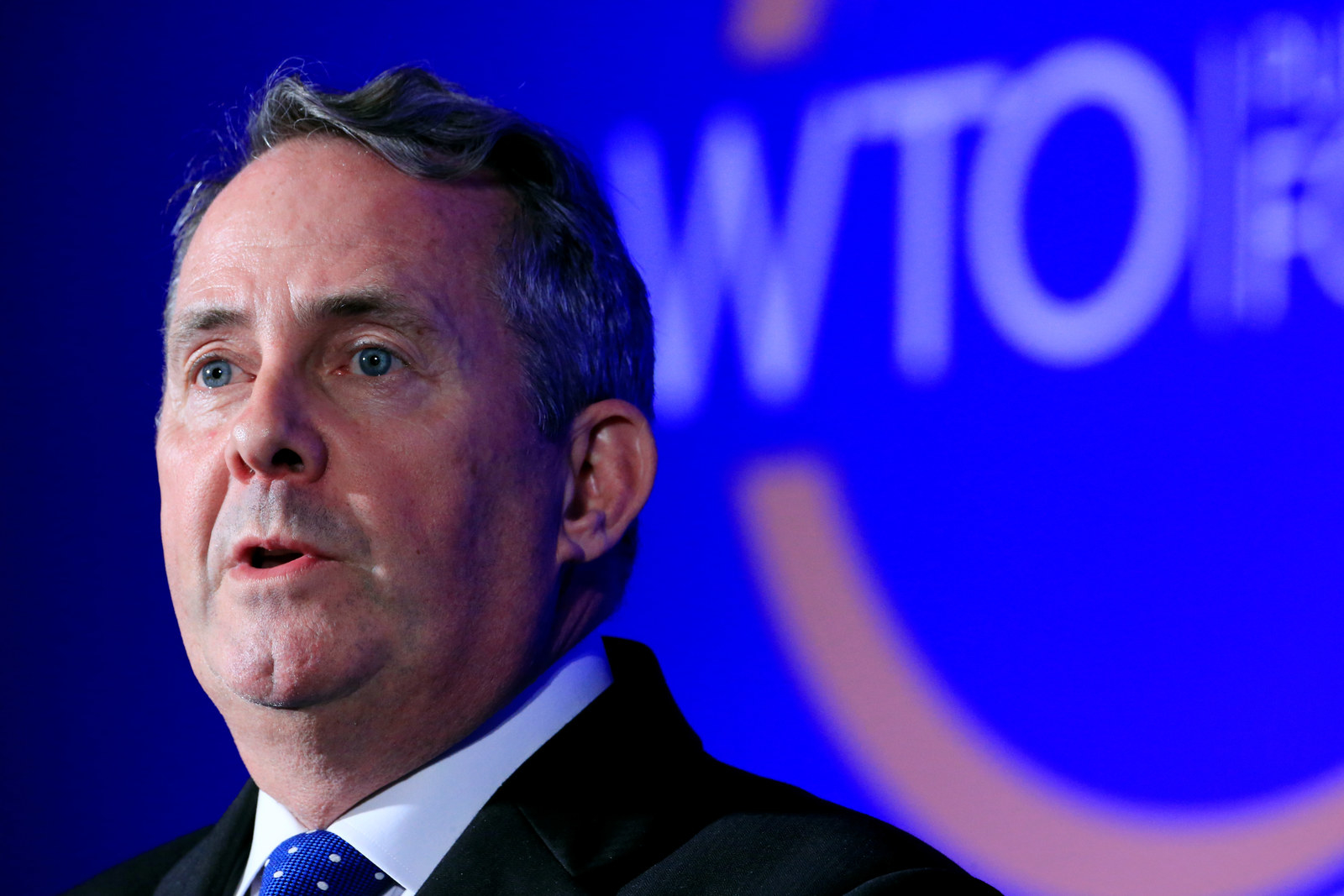
The UK government has no contingency plan in place should it fail to reach agreements to replicate existing trade deals and arrangements with dozens of countries around the world after Brexit, BuzzFeed News has learned.
Britain wants to continue trading on the same terms it currently enjoys through existing free trade agreements (FTAs) and other arrangements negotiated by the European Union, as revealed in a paper published earlier this month about the government’s hopes for future customs relations with the EU.
An official at the Department for International Trade confirmed to BuzzFeed News that the government had no backup plan for these trade deals because it doesn’t believe it needs one, such is the confidence that the process of affirming these arrangements will be completed by the time Britain leaves the EU in March 2019.

“As an international economic department, we are committed to seeking continuity in our current trade and investment relationships, including those covered by EU FTAs or other EU preferential arrangements,” a DIT spokesperson said. "Discussions have begun to establish what may be possible with our trading partners in order to achieve this and provide certainty for businesses.
“We are confident that it will be possible to agree arrangements with third countries who have existing EU FTAs that replicate, as far as possible, the effects of these by the time the UK exits the EU."
The spokesperson added: “The process of seeking continuity will be a technical one, not a renegotiation, allowing us to progress swiftly."
But some experts believe Britain is being overconfident, and question whether the process of replicating dozens of agreements and arrangements is merely a technical one as claimed.
“The question over how much politics enters the fray in converting these agreements depends on the degree of integration the third countries have with the EU,” Allie Renson, head of Europe and trade policy at the Institute of Directors, told BuzzFeed News.
“Most of its existing trade agreements should be a more technically straightforward case of replication with the third country, particularly the older ones where the scope is limited.
"However, Turkey and the EEA countries (Norway, Iceland, and Liechtenstein) are bound to be more difficult and would be more likely to warrant the involvement of the EU, because of the customs union Turkey has, and the EEA agreement – where our relationship to the EU's customs union and EEA law going forward is still far from clear."

For a number of the EU’s trade agreements, such as the comprehensive CETA deal with Canada, the UK’s approach would, however, appear to be grounded on solid footing, and is uncontroversial with the countries involved.
A spokesperson for Global Affairs Canada said: ”With CETA, we have a trade deal with the UK. With provisional application of CETA set to begin on 21 September, 2017, it’s good news for Canada, and for the UK. As the UK negotiates its future arrangement with the EU, we remain fully engaged with our UK counterparts to ensure continuity for Canadian and UK businesses after the UK leaves the EU.”
Other governments BuzzFeed News spoke to declined to comment because discussions with the UK were ongoing and relevant information was still in flux.
The sheer number of agreements and arrangements that need to be dealt with over the next 19 months – as well as the diverse mix among these accords – raises question marks among experts.
Sam Lowe, a London-based trade analyst, said: “It is far from merely a technical process. While countries have so far appeared keen to use the existing EU agreement as a template, many will push for further concessions from the UK – indeed, in my opinion, it would be negligent on their part if they didn’t; they are unlikely to ever have this much leverage over the UK again. We have already seen this happening with South Africa pushing for a renegotiation of agriculture quotas and food hygiene standards.”
The government has so far not disclosed exactly how many arrangements it needs to replicate.

A DIT spokesperson told BuzzFeed that the UK as part of the EU is currently a member of "around 40 free trade agreements covering more than 50 countries", but the government refused to put a number to other types of arrangements beyond acknowledging that "many of the UK’s relationships with non-EU partners and international organisations rest in some way on our membership of the EU".
But according to analysis by the Financial Times, the UK will need to renegotiate more than 750 international treaties, including nearly 300 trade arrangements, just to stand still as it leaves the EU.
Several of the EU's arrangements, such as its association agreement with Ukraine, are particularly tricky because they also cover issues that go beyond trade.
Lowe said "seemingly uncontroversial arrangements" could become problematic due to the nature of domestic UK politics, such as the EU-Israel Association Agreement.
He added: "One of the big issues for me here is that it is not entirely clear to me who in government is taking responsibility for dealing with the replication, or not, of these arrangements. Our relationship with Turkey and the EEA is also incredibly contingent on our relationship with the EU. These are not technical issues, they are incredibly political, and it is wrong to pretend otherwise.”
Other agreements may require new provisions, Lowe said, citing the EU’s FTA with South Korea and requirements on business to demonstrate that an agreed amount of their products, including cars, are of local origin.
A DIT spokesperson told BuzzFeed News it was too early to say what the UK’s approach means in specific cases, as the government is exploring what may be possible with all partners in regard to seeking continuity in existing trade relationships.
Still, even taking into account the goodwill and mutual interests of all parties involved, what remains unclear is what happens if come March 2019 the process of replicating all these agreements and arrangements isn’t completed.
“It’s difficult to see how all of these relationships can be resolved before 29 March 2019. However, this will not be for lack of trying; it is in the interest of all parties to resolve them," Lowe said. "As with many things, we’re left praying for a substantial interim arrangement or extension of Article 50, if for no other reason than to buy us more time."
